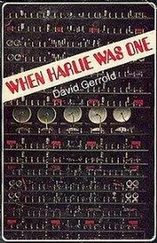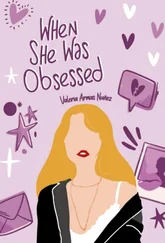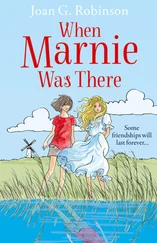1 ...8 9 10 12 13 14 ...23 ‘Like Bowie gets ridiculed for wanting to be interested in new things,’ says Chris. ‘But we’re always looking for a new underground …’
But the problem of how to be confrontational would still obsess a new generation of cultural practitioners during the 1990s. How the hell did you catch anyone’s attention, what with the whole more-in-your-face-than-you thing going on? To some pundits, the age would seem obsessed by sex and death, centring on what Professor Eric Northey would define as ‘the nectothon’ of the mass mediation of Diana, Princess of Wales’s death and funeral. Culturally, in many ways, this was a post-modern re-run of the aestheticism and morbidity of the nineteenth-century ‘fin-de-siècle’ – the cartoon decadence of a neo-grunge demi-monde, with yobs and snobs united in the flashlight of high fashion.
And how did you deal with the phenomenon-seeking inverted commas of free-floating irony? That would become another problem.
Irony (as understatement, overstatement, the conflation of opposites and a general fiddling about, in the name of critique, with context and intentionality), within the cultural practice of the early 1990s, would turn out to be the growing pains of the New Authenticity – the phase before the social realism kicked in. But back in the winter of 1988, there was a feeling abroad about irony that was touchingly innocent; it could remind you, in hindsight, of Truman Capote’s wistful recollections, as an alcoholic, of how he used to get drunk: ‘In Harry’s Bar it just seemed such fun,’ he said.
Likewise Irony. Looking back on it now, and seeing the two culture-vulturing city slickers, thinking out ways to sidestep the obvious, outwit the trend-waves, and play a tune on the bleeps and squeaks of the zeitgeist, there is the realization that the fluffy end of the arts and cultural media during the late 1980s and early 1990s (the swift dissolve between Cult Studies and Lifestyle journalism) had become set to being hyper-cynically arch, or ‘arch’.
On the one hand, Irony could be regarded as a means of responding to, and co-existing with, the conversion of all things socio-cultural into a post-modern bombardment of culturally destabilized, aesthetically blurred, ultimately unauthored and free-floating signifiers – the Phenomena of things. Irony, in this respect, was a kind of ‘two can play at that game’, or ‘I’ll be your mirror’ means of critique.
But the Ironists of the early 1990s had also honed the pursuit of Style Watching (the refraction of the post-punk style press through aspirational high bourgeois print media) to such a degree, that their commentaries became increasingly reliant on the instant translation of trends and phenomena into a code of social satire. This was a mixture of wit and anthropology that could end up dissolving in the acid bath of its own chemistry. For there was a faintly psychopathic edge to all of this, in the sense of cold-blooded style watching, however astute, needing to lack almost any kind of empathy – or even emotional awareness – with its subjects, but simply looking for the most precise emblem of their Type. In many ways, this was the point where Naturalism met Marketing – on an island off the coast of Camp.
At the time this seemed like the weaponry of applied dandyism, and wide open to the perils of terminal ennui: where dandies articulate their philosophy of life through Mock Heroic fashion (the world expressed in a tie-pin, for instance), so the culmination of Irony would be a search for the tiniest detail in other people’s dress and behaviour, which would say the most about them. A noble enough enterprise, in keeping with the naturalism of nineteenth-century fiction (cf. Tom Wolfe’s literary and journalistic homage to Balzac and Dickens), but also open to abuse as the reduction of all things to nothing more than a periodic table of status.
Needless to say, by the middle 1990s, the sheer surfeit of Irony in the zeitgeist was like some kind of cultural vitamin imbalance. We were gorged on Irony, sickened and bloated and cramped with snooty cleverness. Irony was our trapped wind. The critic Robert Hughes – somewhat brutally – even described the art of Jeff Koons as ‘the last of the methane in the cow of post-modernism’.
But then a miracle occurred, and Irony turned into the Pursuit of Authenticity. This was partly a cyclical reaction to the trend, but also because a new generation of Ironists had realized that the only way of becoming Irony-proof themselves was to proclaim yourself one hundred per cent Authentic: a no-nonsense, bit-of-a-laugh, see-you-down-the-pub kind of person. Enter the massed armies of Mockney, the Lads, Ladettes and Babes – the football’s coming home, none-of-that-low-fat-malarkey, ‘trainspotting’, fever-pitching, text-messaging, wap-phoning, Girlie Show and two smoking barrels. Enter, Attitude! A breath of fresh air, perhaps, or the fashionable face of anti-intellectualism.
Robert Hughes, needless to say, would now become Newly Marginalized and wheeled out as a Reactionary for his trouble – partly because of his book, The Culture of Complaint – which was held up as a proto-typical, disgusted-of-Manhattan, ‘everything’s dumbing down’, anti-political-correctness kind of book (the same thing would happen to Harold Bloom, with his ‘School of Resentment’ comments about the dangers of politicized – isms to literary criticism, in his massive book, The Western Canon ), but also because the top froth of the culture – television, advertising, various chunks of the visual arts, pop and literary worlds – had been hanging on to irony for dear life, even as they were beginning to feel the pull of New Authenticity.
Robert and Harold, therefore, were shut up faster than a pair of dotty old men who had wandered into a rave – they just didn’t get it, did they, and in the neo-Swinging Nineties, if you weren’t hip to the Attitude!, you were … almost definitely … hopelessly … middle-class and toxic .
And this was strange: in a broad-band of culture which was being maintained, administrated, mediated and consumed almost entirely by the middle classes, for an actual cultural practitioner to be regarded in any way as ‘middle-class’ was pretty much the end of the line. It usually implied that you were anti-modern, and, worse, anti-multicultural. Cultural-type people, therefore, were falling over one another to become bourgeois-proof. Regional culture (for example), and dialect in particular, was seized upon to provide the new morality comedies of Authenticity – from Trainspotting to The Full Monty ; but at the same time there had seldom been such a pan-media boom in essentially bourgeois lifestyle subjects, from funky cooking to interior design and urban gardening.
‘So why,’ – as Quentin Crisp once remarked – ‘was there such a racket?’
‘The ‘dumbing down’ ticket was a waste of time: a debased and pointless phrase which, along with the equally pointless ‘politically correct’ and ‘Middle England’, simply denoted some vague idea of an armed confrontation between, on the one hand, tweedy intellectuals from the Home Counties with maths-teacher haircuts and a passion for opera, and on the other wantonly extravagant, taxpayer-paid-for, brand-new Faculties of Hip-Hop Studies. It was simply the old High and Low culture debate, but now with added Bitterness.
Rather, the 1990s, perhaps, were acting out their version of the cultural identity crisis that occurred towards the end of most eras, and which the critics of the time can never quite agree upon. And as a fin-de-millennium, as well as fin-de-siècle, the Nineties got a triple whammy of crisis.
With regard to the trend for such crises, writing in 1939 about the 1930s, for instance, Malcolm Muggeridge had stated: ‘The present is always chaos, its prophets always charlatans, its values always false. When it has become the past, and may be looked back on, only then is it possible to detect order underlying the chaos, truth underlying the charlatanry, inexorable justice underlying the false values.’
Читать дальше












